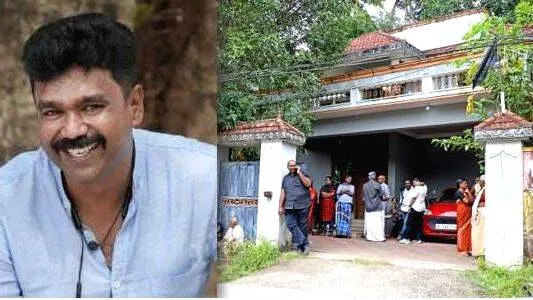Top Stories
Tragic Onam Celebrations Lead to Dual Suicide in Vakkom

In a heartbreaking incident during the Onam celebrations, Panchayat member Arun and his mother were found dead in an apparent double suicide in Vakkom. The situation escalated from a verbal dispute into a physical altercation, ultimately contributing to the tragic decision made by both individuals.
The sequence of events began with a dance performance at Pattikavila Junction, close to Arun’s residence. Following the celebration, Arun engaged in a heated argument and subsequently a fistfight with individuals mentioned in his suicide note. Both parties involved lodged counter-complaints with the local police, where allegations arose that Arun had used a caste slur and attempted to break a necklace belonging to one of the parties. Despite these serious claims, the police took no further action regarding either complaint.
Recently, tensions increased when the opposing parties escalated their grievances to the court against Arun. A close friend of Arun revealed that he had been experiencing significant mental distress, feeling increasingly withdrawn and fearful that he might be denied bail if charged. Panchayat member Faiyaz conveyed to Kerala Kaumudi that Arun had expressed a loss of hope regarding future political ambitions.
Financial difficulties also added to Arun’s stress. He had personally funded the cleanup of garbage in the local market, spending ₹25,000. Although the authorities promised reimbursement upon submission of worker details, five members from the local BJP opposed the payment, leaving Arun’s financial efforts unrecognized.
Arun’s mother played a pivotal role in his life, having raised him alone after his father abandoned the family. As an only child, Arun shared a deep bond with his mother, who supported him in all his endeavors. Local residents speculate that Arun’s decision to end both their lives stemmed from a fear of leaving his mother alone after his death.
Family dynamics were also strained; every Saturday, Arun’s wife, Reema, and their son, Tejas, would visit Reema’s family in Panayilkadavu. Arun would typically return them home by Sunday afternoon. On this particular Sunday, he did not appear to collect them, and when Reema inquired, he assured her he would bring them back by Monday morning, a promise that was tragically unfulfilled.
The community is left grappling with the loss of two lives intertwined by deep familial love and a series of unfortunate events. As investigations continue, local authorities and residents reflect on the critical issues surrounding mental health, community support, and the need for open dialogue in addressing conflicts.
-

 World2 months ago
World2 months agoSBI Announces QIP Floor Price at ₹811.05 Per Share
-

 Lifestyle2 months ago
Lifestyle2 months agoCept Unveils ₹3.1 Crore Urban Mobility Plan for Sustainable Growth
-

 Science2 months ago
Science2 months agoNew Blood Group Discovered in South Indian Woman at Rotary Centre
-

 Sports2 months ago
Sports2 months agoBroad Advocates for Bowling Change Ahead of Final Test Against India
-

 World2 months ago
World2 months agoTorrential Rains Cause Flash Flooding in New York and New Jersey
-

 Top Stories2 months ago
Top Stories2 months agoKonkani Cultural Organisation to Host Pearl Jubilee in Abu Dhabi
-

 Sports2 months ago
Sports2 months agoCristian Totti Retires at 19: Pressure of Fame Takes Toll
-

 Science2 months ago
Science2 months agoNothing Headphone 1 Review: A Bold Contender in Audio Design
-

 Top Stories2 months ago
Top Stories2 months agoAir India Crash Investigation Highlights Boeing Fuel Switch Concerns
-

 Business2 months ago
Business2 months agoIndian Stock Market Rebounds: Sensex and Nifty Rise After Four-Day Decline
-

 Politics2 months ago
Politics2 months agoAbandoned Doberman Finds New Home After Journey to Prague
-

 Top Stories2 months ago
Top Stories2 months agoPatna Bank Manager Abhishek Varun Found Dead in Well









